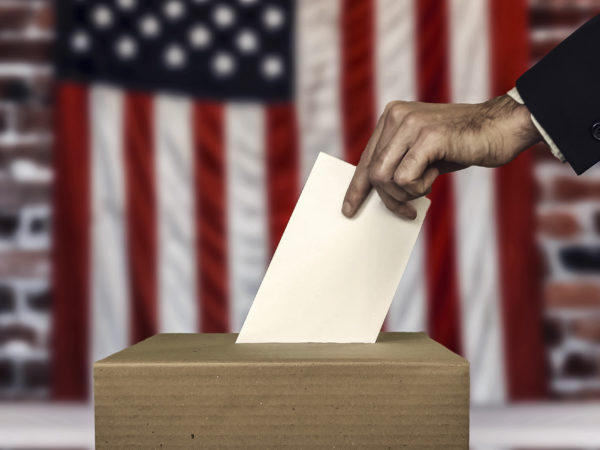Virginians on Tuesday headed to the polls to elect a new governor, in a closely contested race between the Democrat Terry McAuliffe and Republican Glenn Youngkin widely seen as a referendum on Joe Biden’s presidency.
They did so to a warning from a leading Virginia polling expert, who said Youngkin may be riding a wave of “white backlash” all the way to the governor’s mansion, having successfully focused on controversy over the place of race in education.
In the final hours of the campaign, the candidates offered starkly different closing arguments, making their cases to voters whose odd-year gubernatorial elections have long reflected the national political mood a year into any new administration.
Saddled by Biden’s sagging poll numbers and intra-party wrangling that has gridlocked the president’s domestic spending agenda, McAuliffe has attempted to tether his opponent to Donald Trump, a polarizing figure in voter-rich northern suburbs.
Youngkin has mostly avoided the subject of Trump while embracing many of his tactics, a strategy many Republican strategists believe could be a model for midterm elections next year.
Polls showed an unexpectedly close race in a state that has trended Democratic since the election of Barack Obama in 2008. A loss in a state Biden won by nearly 10 points in 2020 would be deeply alarming for a party already bracing for a difficult challenge next year.
On Monday, the last day of dueling events, McAuliffe continued to hammer Youngkin over his connections to Trump, warning darkly that a Republican win in Virginia could help pave the way for a Trump comeback in 2024. But then he went further.
“Guess how Glenn Youngkin is finishing his campaign?” the former governor, 64, told a crowd in Fairfax. “He is doing an event with Donald Trump here in Virginia.”
That was a lie. Trump was not in Virginia, though he did boost the Republican candidate with a tele-rally. Youngkin did not participate.
Youngkin, 54, a former private equity executive and political newcomer, closed his campaign with a final attempt to harness parents’ anger over school closures, mask mandates and what their children are learning, and turn it into an election night upset.
Asked why education had become a central factor in Youngkin’s stronger-than-expected showing, Larry Sabato of the Center for Politics at the University of Virginia said: “One of the candidates decided it was his ticket to the governor’s mansion and he may well be right.”
Speaking to MSNBC, Sabato pointed to the core of Youngkin’s appeal on education: a promise to ban critical race theory in schools. Critical race theory, or CRT, is an academic discipline that examines the ways in which racism operates in US laws and society. It is not taught in Virginia schools, regardless of Youngkin’s promise to ban it.
“The operative word is not critical,” Sabato said. “And it’s not theory. It’s race. What a shock, huh? Race. That is what matters. And that’s why it’s sticks.
“There’s a lot of, we can call it white backlash, white resistance, whatever you want to call it. It has to do with race. And so we live in a post-factual era … It doesn’t matter that [CRT] isn’t taught in Virginia schools. It’s this generalised attitude that whites are being put upon and we’ve got to do something about it. We being white voters.”
Cultural issues have dominated the race, Youngkin also promising to give parents more control over how public schools handle gender and Covid-19, McAuliffe vowing to protect voting rights and abortion access.
McAuliffe, a Clinton ally who was governor of Virginia from 2014 to 2018 – the state does not allow consecutive terms – has seen a lead evaporate. Polls have shown Youngkin succeeding by appealing to independents turned off by Trump without alienating his ardent supporters.
Youngkin campaigned as an advocate for parents who want more say in their children’s education, capitalising on anger among conservatives who believe schools are overreaching in the name of diversity. Speaking in Richmond on Monday, he promised he would usher in “a Virginia where our government stops telling us what to do all the time”.
McAuliffe also handed Youngkin a political gift when he said in a debate in September: “I don’t think parents should be telling schools what they should teach.”
He has attacked Youngkin for hesitating to say whether Biden won the presidency legitimately. Youngkin acknowledged Biden’s victory but also called for an audit of Virginia voting machines, prompting Democrats to accuse him of validating Trump’s baseless election conspiracy theories.
Both Biden and Barack Obama campaigned for McAuliffe. Trump has not visited the state. In his tele-rally on Monday, the former president told voters Youngkin would protect suburbs and did not repeat his lies about voter fraud.
McAuliffe responded on Twitter, saying Trump was “pulling out all the stops to win this race because he knows Glenn will advance his Maga agenda here in Virginia. Tomorrow, Virginia will choose a better way”.
In their final word on the campaign, Sabato’s team at UVA moved their prediction from “leans Democratic” to “leans Republican”.
“Our sense is that the race has been moving toward Youngkin,” Kyle Kondik and J Miles Coleman wrote, “in large part because of the political environment. McAuliffe’s Trump-centric campaign also just doesn’t seem as potent in a non-federal race with the former president no longer in the White House.”

